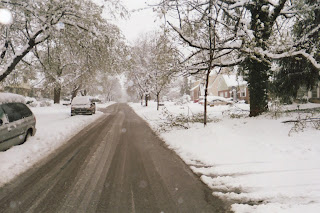IN PRAISE OF GOOD BLACK FATHERS . . . A Few Comments & A Call For Submissions . . .
Recently, while reflecting on "Carl" the male protagonist in my novel, After The Dance, I drew up a list of some of his more positive traits. The list included some of the following descriptions:
1) He's an old school romantic -- he draws a considerable amount of pleasure from love songs and slow dances;
2) He's hard-working -- he juggles a 9-5 at FedEx and a part-time handyman gig;
3) He's smart and goal-oriented -- he takes night classes & is working toward an MBA;
4) He's silly & fun-loving -- he appreciates the humor in life and isn't too proud or uptight to make a fool of himself every now and then;
5) He's a good father -- his children are, without a doubt, his pride and joy.
Of all the traits on my list, I think the last one may, ultimately, prove the most intriguing to many readers. In After The Dance, I paint a portrait of an adult Black male who not only provides for his children, but also plays and prays with them too. When was the last time you read about a brother like that? Much less saw one on television or at the movies?
There are some in the media, Hollywood, the publishing world, the music industry, society in general, and heck, even within the African American community who would have us believe the type of Black man I just described doesn't even exist. I know better. And as the saying goes, it's never a bad idea to "write what you know." (smile)
So for the most part, that's what I did in After The Dance. I wrote about Black men (and women) who though flawed and at times guilty of outrageous, if not down-right morally reprehensible behavior, are still basically good at heart, capable of seeing the error of their ways and open to changing for the better.
I come from a family full of men like my protagonist, Carl. Though not "perfect" by any means, most of them were/are hard-working, God-fearing, loving and devoted to their families. I'm also proud to say I come from several generations of Southern, working-class, but largely "intact" Black families. I grew up in a household with a Black father. My father lived in a household with a Black father. I grew up knowing both of my African American grandfathers. My own father grew up knowing both of his African American grandfathers, both of whom lived within walking distance of him and his siblings.
My grandfather and his children on an outing. My father is the babyboy seated on the bench. (From Lori's Picture Collection)
No, my father didn't come from Black middle-class, college-educated people. He came from Black Southern farmers and laborers, who though "land-rich" were by most standards "dirt poor." But the way some folks talk, people like me ought to somehow feel guilty about our so-called "privileged" upbringing. Well, forgive me, but I don't . . . not in the least.
My grandfather (mother's side) and my son.
(From Lori's Picture Collection)

What I do feel, I'm not ashamed to say, is special . . . thanks in large part to the presence of a loving, caring and supportive Black father (as well as a couple of grandfathers, a bunch of uncles and a slew of male cousins) in my life.
My Dad and my son. (From Lori's Picture Collection) 
If you have a "poignant" story about a Black father you'd like to share, The Five Sisters Publishing Company out of Sacramento, California is looking for essays (350-1500 words) for their "Father's Project." The deadline is November 15, 2007. Authors of selected stories will receive a $25.00 honorarium, a copy of the book and a byline. Check out the following link "Our Black Fathers" for more information.













